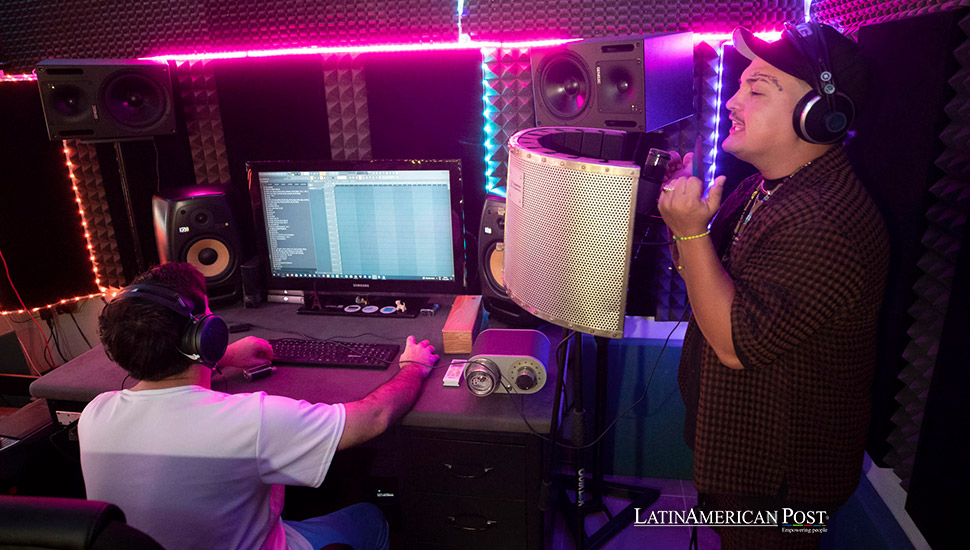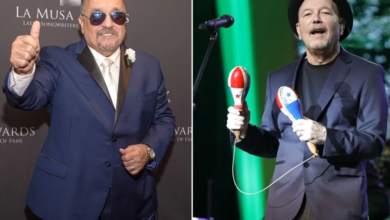Reparto Rythm Redefines Cuban Music and Culture

Reparto, a genre-blending reggaeton and Cuban dance music, has taken over Cuba’s streets, cafes, and beaches. Its rise, controversial lyrics, and cultural impact reshaped the island’s music scene, especially among the youth.
The Birth of Reparto as the New Cuban Sound
On the beaches, in cafes, on the streets, and even in taxis, a new sound dominates the Cuban airwaves—Reparto. This locally developed musical genre, born out of the island’s vibrant streets, has become omnipresent, particularly among Cuba’s youth. The genre, a fusion of reggaeton rhythms with the island’s traditional dance music, represents a significant shift from the more conventional sounds of Cuba, like cha-cha-cha and danzón, and instead, reflects the island’s growing urban identity.
According to Cuban musicologist Lalau Yllarramendiz, Reparto represents a “cultural appropriation of Latin reggaeton” with a uniquely Cuban twist. The genre traces its roots back to the island’s residential neighborhoods or “repartos”, where music production was done far from the reach of international record labels and digital platforms. In a country without mobile internet access until 2018, Reparto blossomed independently, bypassing traditional media channels like television and state radio, which offered little to no support for the genre.
The advent of Reparto was fueled by informal networks such as the “paquete semanal”—a system where international television content and music were downloaded and shared across the island via CDs and USB drives. International reggaeton hits by artists like Daddy Yankee and Don Omar were “Cubanized” by local artists, who infused these songs with the rhythms and language of the Cuban barrios.
In an interview with EFE, Yllarramendiz emphasized the ingenuity of Cuban musicians in this genre: “It’s creativity beyond just the music. It’s about creating and distributing music in a market that operates differently from the rest of the world.”
One of the early stars of Reparto was Elvis Manuel, a young artist from Havana’s outskirts who tragically drowned in 2008 at just 18 years old while attempting to flee to the United States. Despite his short career, Elvis Manuel left a lasting legacy in the genre, inspiring future generations of Cuban musicians to follow in his footsteps.
Reparto’s Struggle with Misogyny
However, Reparto’s rapid rise has not been without controversy. Many of its lyrics have been criticized for promoting misogyny and trivializing gender-based violence. In September 2023, Cuban state television issued an apology after airing a Reparto song that featured problematic lyrics, including a reference to violence against women.
For Cuban feminist lawyer Alina Herrera, there’s no question that the genre reproduces sexist themes. “Yes, it is; it reproduces them intensely,” she told EFE. However, she quickly points out that the problem extends beyond Reparto, calling it a “social issue” rather than one confined to the genre alone. “It’s a manifestation, not the disease. These lyrics don’t come from nowhere,” Herrera explained, pointing to the broader societal context in which such messages are created and consumed.
In addition to the concerns over misogyny, Reparto has also faced criticism that Herrera argues is rooted in classism and racism. “The machismo in other genres doesn’t get criticized the same way,” she noted, comparing the treatment of genres like reggaeton and Reparto with more mainstream Western music. “The Beatles, for example, have extremely misogynistic songs, but they’re well-crafted, sung beautifully, with pretty metaphors that soften the message. But Reparto and reggaeton have explicit lyrics, and that’s when moral codes kick in because they are also black genres,” Herrera said.
The Streets As Authentic Voice of Reparto
Reparto artists like Orlenis 22K, a seasoned veteran of the genre with 12 years in the industry, agree with Herrera’s assessment of the double standards applied to their music. In an interview with EFE, Orlenis reflected on his criticisms throughout his career, with detractors insisting that Reparto is not “real” music.
“They say we need to soften our words… but if we do that, it stops being Reparto, it stops being from the streets,” he argued from his recording studio in Havana. Orlenis sees Reparto as an authentic reflection of life in the Cuban barrios, with all its rawness and unfiltered energy. “I don’t have the eloquence to sit and tell a woman, ‘Oh, you’re so beautiful!’ No. I’ll say, ‘Look, you work for me, and I’m here for you. You’re a fighter.’ Do you get it? That’s the street talk,” Orlenis explained.
For artists like him, Reparto is more than just a genre—it’s a way of life. It captures the voice of the people who live on the margins and don’t have access to mainstream Cuban culture’s polished aesthetics or polished language. The roughness and explicitness of Reparto’s lyrics make it real for its audience, reflecting life’s daily struggles and triumphs in the barrios.
Reparto’s International Expansion
While Reparto remains deeply rooted in Cuba’s local culture, the genre is beginning to gain traction beyond the island’s shores. Artists like Orlenis 22K are now performing in countries like Peru, where the genre has been embraced to the point that Cuban Reparto artists are being invited as headlining international acts. This is just the beginning of a slow but steady expansion beyond Cuba and Miami for Orleans.
The genre’s evolution has been gradual, but there are signs of a breakthrough. “With all the genres here, it’s always been like this. When son and cha-cha-cha first came out, they were marginalized, and no one wanted to accept them. But now, barriers are starting to break,” Orlenis told EFE, expressing optimism about Reparto’s future on the global stage.
Back in Cuba, Reparto is also beginning to make inroads into the official channels that long excluded it. While the genre still struggles to find space on state-run media like radio and television, its increasing popularity has forced some broadcasters to include it in their programming, however minimally.
Despite its controversies, Reparto represents a powerful and authentic expression of Cuban identity that refuses to be confined by traditional cultural expectations. As it continues to evolve and grow at home and abroad, the genre serves as a testament to the creativity, resilience, and defiance of Cuba’s marginalized communities.
Also read: Colombia’s Cultural Jazz Renaissance in Mompox
Reparto is more than just a musical genre—it is a cultural movement reflecting modern Cuban society’s complexities and contradictions. Born out of the streets and sustained by the ingenuity of the island’s musicians, Reparto offers a glimpse into a raw, honest, and unapologetically urban Cuba. Despite the lack of institutional support, its rise highlights the importance of grassroots creativity in shaping the cultural landscape. As the genre continues to evolve, it may face challenges, but its impact on the island’s music scene is undeniable. Whether embraced or rejected, Reparto is here to stay, marking a new chapter in Cuba’s rich musical history.




